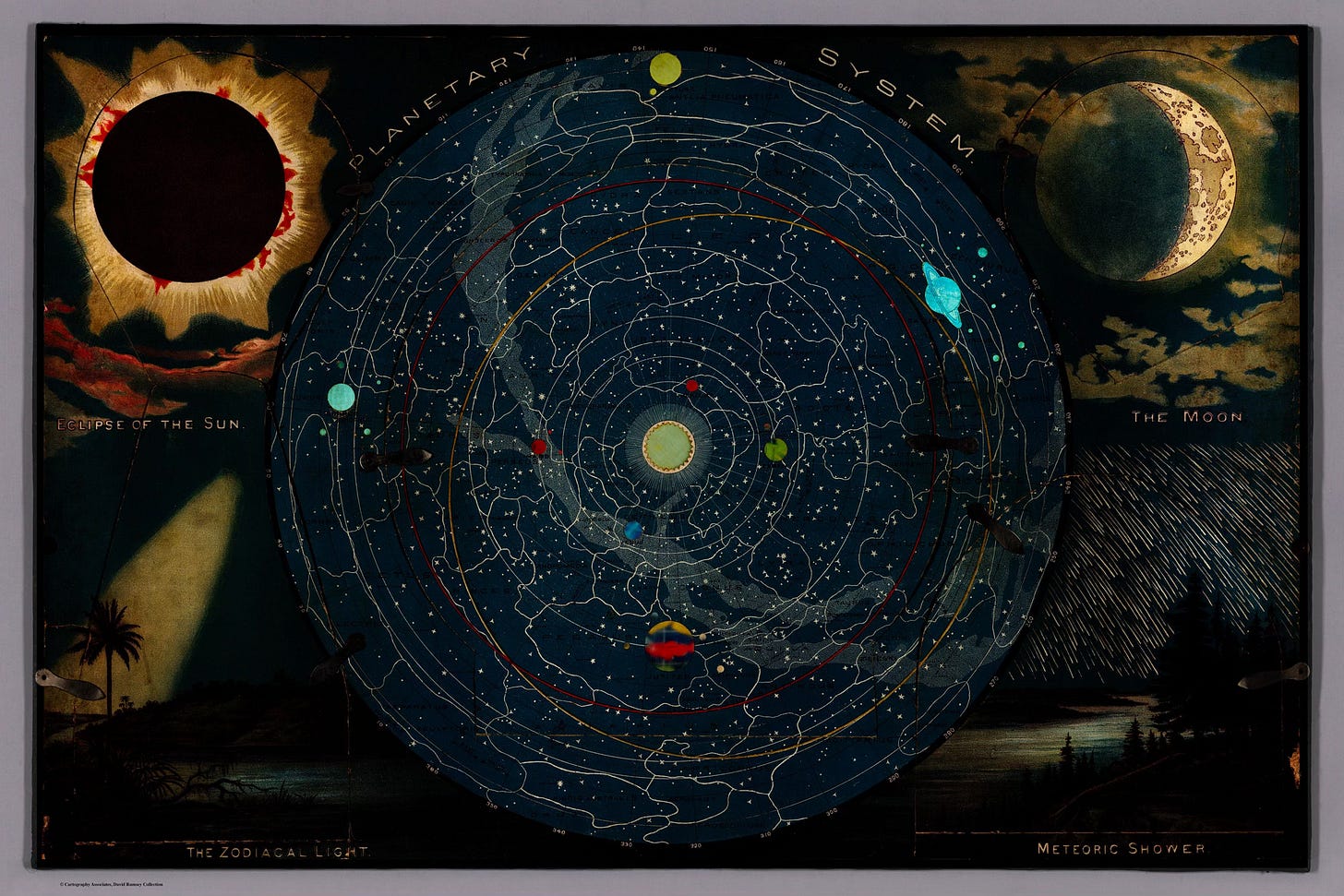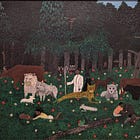The One Thing that Changed My Social Media Usage
And I'll never, ever, ever go back
Five years ago, in the throes of 2020, when we were were all still arguing about masks, vaccines, Black Lives Matter, the price of lumber, and losing friendships right and left (literally), Netflix released their documentary The Social Dilemma.
It was nothing of particular news to most of us, but I reflected on it at the time saying,
One of the things I appreciated about the documentary was, in spite of all the red flags, whistleblowing, and dopamine drops, they didn’t say to get off social media. Instead they said to use it better. I am a big fan of moderation in all things, so this appeals to me. Then how do I, I asked the documentary, use it better?
One of their suggestions was to not click on any of the algorithmic suggestions. If you’re on YouTube, don’t click on the videos telling you “You might be interested in,” don’t take the bait on Instagram’s, “You might also know,” don’t, under any circumstances, click on the ads on Facebook…
Basically, the doc says, use social media or it will use you.
It was around that time that I started using social media in a more responsible (for me) way. And the evidence is in! Using social media in a healthy way results in, drumroll please,
Zero growth—I’ve lost thousands of followers across every platform since I started doing this.
Little visibility—my stories, posts, links, get fewer views now than they did in 2020 across the board.
No chance of virility—don’t even try, it won’t happen.
And more! All for the low, low price of keeping your sanity in a world gone mad.

In 2020 I was seeing how the echo chamber of our social media had set us up for disaster, and how I had personally “othered” my friends and neighbors not in spite of social media, but because of it.
Here was my example:
If I follow one crunchy granola mama on Instagram who only eats organic, talks about gut issues, and doesn’t vaccinate her kids, that’s okay I guess. But if crunchy mama suggests “If you like following me, you’ll love following my ten other friends!” we are no longer talking about computer algorithms, but human ones. If I follow even three of her suggestions, and those three make ten more suggestions each, pretty soon, I will have found myself in a comfy, crunchy mama cocoon. My adventure into this echo chamber will have felt easy, seamless, and obvious. I will begin to think “Why doesn’t everyone believe like these mamas? They’re so smart and pretty and their kids wear only organic neutrals and their kitchens are so clean and they care so much about XYZ and they always (air quotes) do their research (end air quotes).” I can begin very quickly to think the whole world looks like, or should look like, this. Carry this illustration over to Facebook, Twitter, YouTube, Pinterest, and whatever other icons you click often on your smart phone. You will live in what looks like the most beautiful valley ever created, surrounded on all sides by mountains and cliffs that echo back your filtered truths to you endlessly.
And you will have “othered” your neighbor. You will begin to think, “How could they possibly believe that? Think that? Do that? Can’t they see what’s staring them in the face?! Why are they ignoring the research? Are they insane?” The answer is no, and probably, likely, they are standing in another valley of their own making that’s just slightly different than yours. Like, maybe instead of starting with a crunchy granola mama, they started with an Army veteran, or a single mother, or a questioning teen, or a celebrity pastor, or a doubting Christian, or ______________.
By letting their social media use them, they tunneled their way right into an echo chamber.
A few months ago, Nate and I watched Ronnie Chieng’s Netflix comedy special, and this clip has lived rent-free in my head since then. I think about it constantly:
(There is a significant amount of language in this special and some topics some might find really offensive. I don’t recommend the special to you if that’s not your thing. This clip is relative free of that, with the exception of 2-3 (I think) F-words.)
One Small Shift
It’s Lent right now, and the world—from my vantage point—is very much on the same kind of fire it was on in 2020, and many of you might be taking a break from social media again, rethinking your use of it or its use of you. So I thought it might be a good time to suggest this one small shift that will change everything for you?
Don’t feed the algorithm. This takes an incredible amount of discipline, but after a few months, you’ll hardly notice it anymore. Your muscles will be strong, they will avoid the side of the screen where the algorithm lives, the button on the bottom of the app where the whole new world opens up to you. And, which is more (I think), you will be less likely to both tap on whatever your friends share and less likely to follow who they recommend.
How can you say this? you might ask me. Don’t you make your living by writing and sharing things online, and doesn’t it help when people tap on it, read it, and share it?
Of course! Of course it helps. It helps grow my readership, it helps grow my ego, it helps me believe that I have the words of eternal life, and ultimately, it is a very poor substitute for meaning and value in this world. In 2020 I began to see that in a big way. I took a big chunk of time off social media in the following twelve+ months, and my brain rewired itself effectively. Almost, some might say, too effectively. Social media holds almost no sway over me anymore. I am disenchanted with its lures, its likes, its promises to improve my life, my brain, my body, my spiritual life, etc.. Yes, there are still good people saying great things (I hope I’m one of them), but more and more I’m convinced the really good stuff will reach me if it reaches me, and it will have to reach me in a different way than someone’s post on Instagram or share on Facebook.
I love Haley Baumeister’s suggestion to share the best stuff in long form posts (like I try to do with my bi-weekly Link Love) instead of in links on Instagram, Facebook, Threads, Notes, and more. Maybe that doesn’t work for everyone, especially if you don’t have a long form way to share, but there are other creative ways you can share things you like.
Here are some of my favorite:
When I read or see something I think someone in particular might like, I text them the link, and then, if they engage with the book, song, article, etc., we can have a conversation about it. I love doing this!
If I get an email from a writer I like that I think someone or a group of someones might like, I forward the email (this might trigger Gen X/elder Millenials who learned to ignore the dreaded email forward…).
I let the piece sit open on a tab for a week or a month, revisit it occasionally, and maybe it triggers some further thoughts, which I then write about it here on Sayable for the rest of you.
My point is, I’m trying to think of creative ways to work around the algorithm, to avoid the pipeline from “self-improvement to storming the Capitol,” or whatever the pipeline is in my story. Identify what that pipeline is in your story (and you’re going to need to be wildly self-critical here for a moment, maybe do it with someone else you love and trust but who disagrees with you on a number of things and isn’t afraid to tell you), take a break from it all if you need to, rewire your brain, and then begin to tell social media how you’re going to use it and how it’s not going to use you.1
On that note, here’s some other Sayable pieces that relate to this conversation:
Spoiler alert: if you are still using SM of any kind, and I include Substack in this, it’s still using you. That IS the world we live in. You can opt totally out and hat’s off to those who do, but I’m not sure that’s sustainable. For more sustainable ways of being wise about its usage in your life and your family’s, read Andy Crouch’s Tech-Wise Family.







All of this! I so resonated with you. I’ve had a complicated relationship with social media, particularly with IG, for a long time. I’ve fasted from social media every Sunday for the past ten years. I’m always refreshed come Monday. Then, as soon as I « ré-enter », I begin to feel the familiar anxiety. It creeps in slowly. But by mid week if I’m not careful I can find myself wasting precious time, attention, and energy scrolling. So this year I’m paying better attention. Using my iPhone’s features I limit my daily time to about 10 minutes. When I hit the limit it closes the app. Of course you can revert it. What I found interesting is that at first I reverted a couple of times. But eventually I found myself accepting the limit and moving on. It’s been super helpful. I find most egregious how the more time I spent on social—and again especially IG—the more my peace of mind and tranquility suffered. It drew me away from life-giving habits like reading and moving my body by going for a walk.
My approach to social media has changed so much since I have been off of it so much over the past four years. I still want to resource people but a lot of what I do on social media is repurposed pieces of writing from Substack. My approach is a continual work in progress. I always feel I could argue my way into not sharing anything on IG.